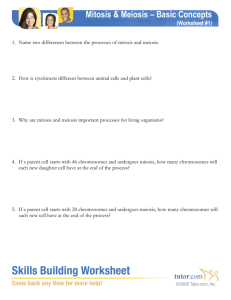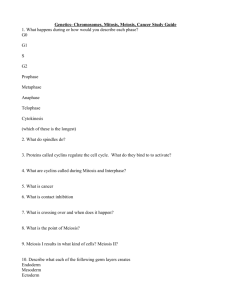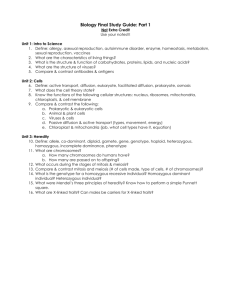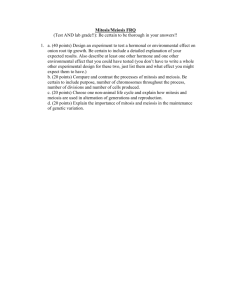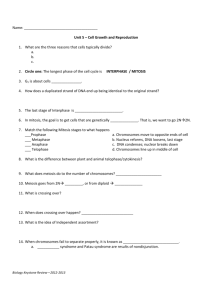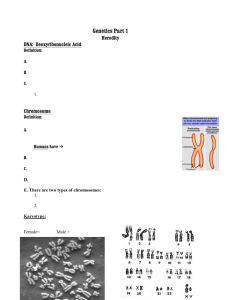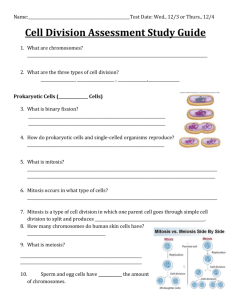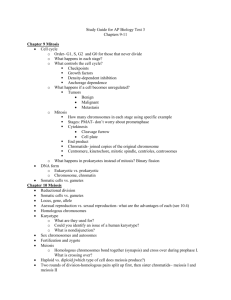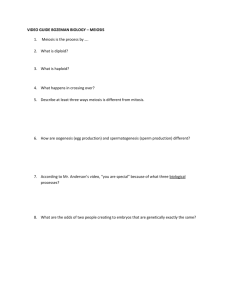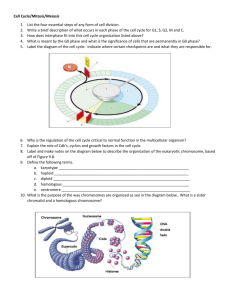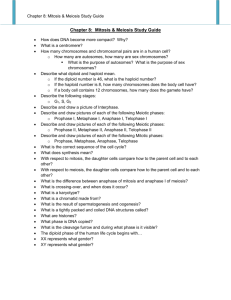Class XI - New Era Public School
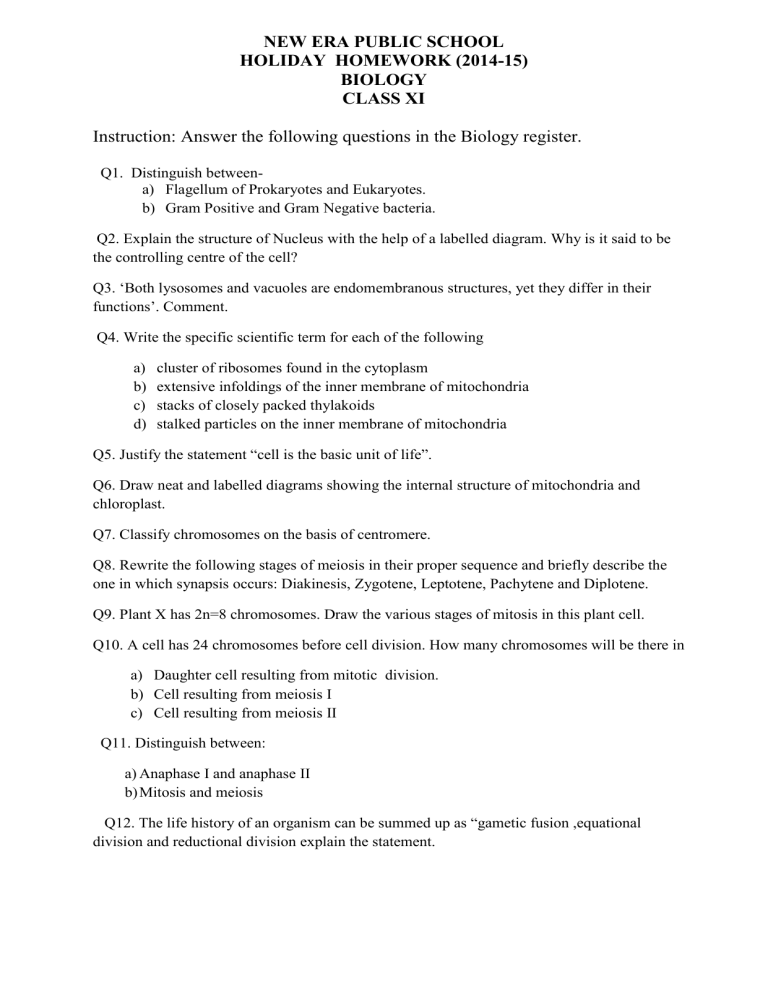
NEW ERA PUBLIC SCHOOL
HOLIDAY HOMEWORK (2014-15)
BIOLOGY
CLASS XI
Instruction: Answer the following questions in the Biology register.
Q1. Distinguish between- a) Flagellum of Prokaryotes and Eukaryotes. b) Gram Positive and Gram Negative bacteria.
Q2. Explain the structure of Nucleus with the help of a labelled diagram. Why is it said to be the controlling centre of the cell?
Q3. ‘Both lysosomes and vacuoles are endomembranous structures, yet they differ in their functions’. Comment.
Q4. Write the specific scientific term for each of the following a) cluster of ribosomes found in the cytoplasm b) extensive infoldings of the inner membrane of mitochondria c) stacks of closely packed thylakoids d) stalked particles on the inner membrane of mitochondria
Q5. Justify the statement “cell is the basic unit of life”.
Q6. Draw neat and labelled diagrams showing the internal structure of mitochondria and chloroplast.
Q7. Classify chromosomes on the basis of centromere.
Q8. Rewrite the following stages of meiosis in their proper sequence and briefly describe the one in which synapsis occurs: Diakinesis, Zygotene, Leptotene, Pachytene and Diplotene.
Q9. Plant X has 2n=8 chromosomes. Draw the various stages of mitosis in this plant cell.
Q10. A cell has 24 chromosomes before cell division. How many chromosomes will be there in a) Daughter cell resulting from mitotic division. b) Cell resulting from meiosis I c) Cell resulting from meiosis II
Q11. Distinguish between: a) Anaphase I and anaphase II b) Mitosis and meiosis
Q12. The life history of an organism can be summed up as “gametic fusion ,equational division and reductional division explain the statement.

